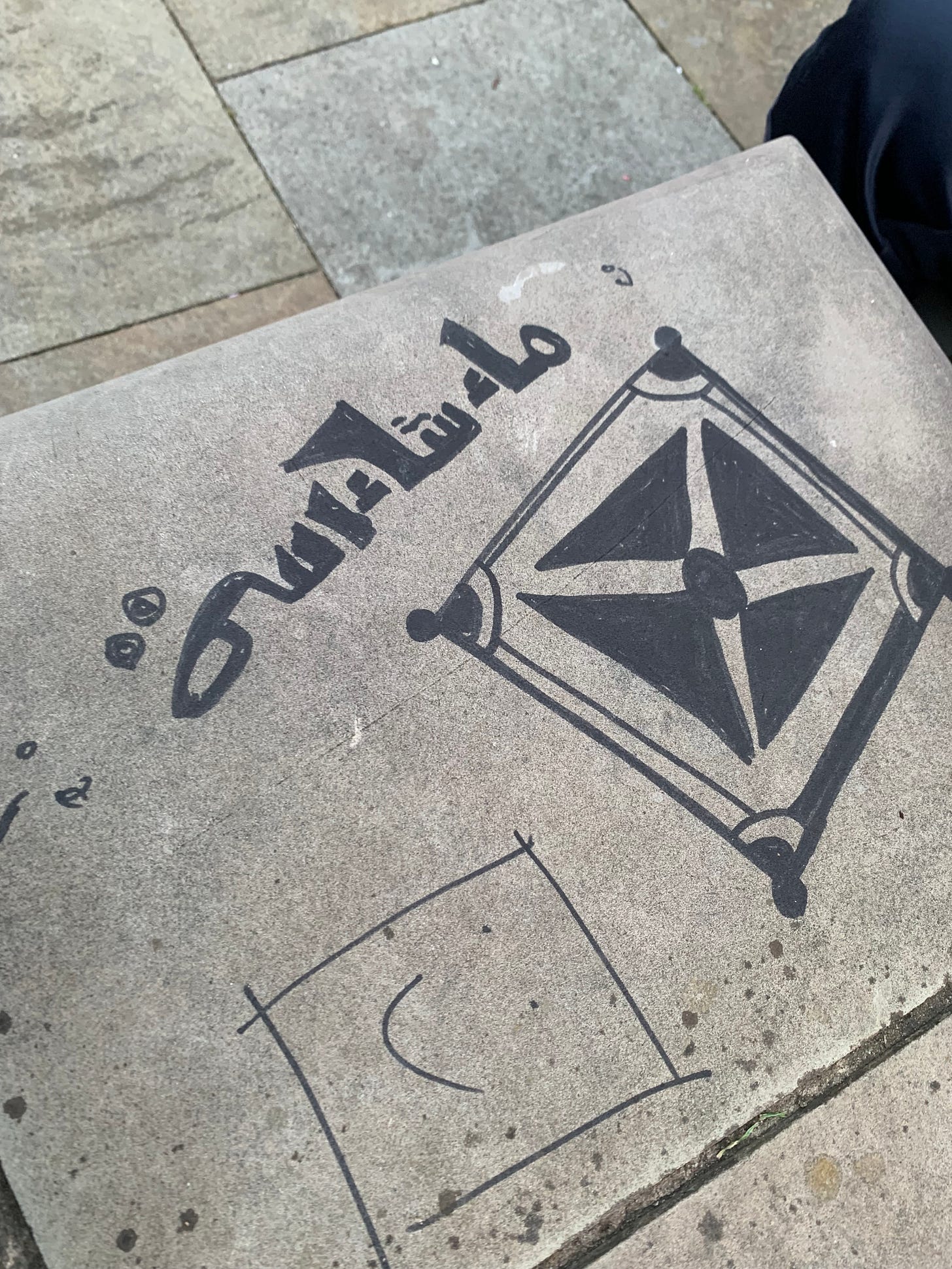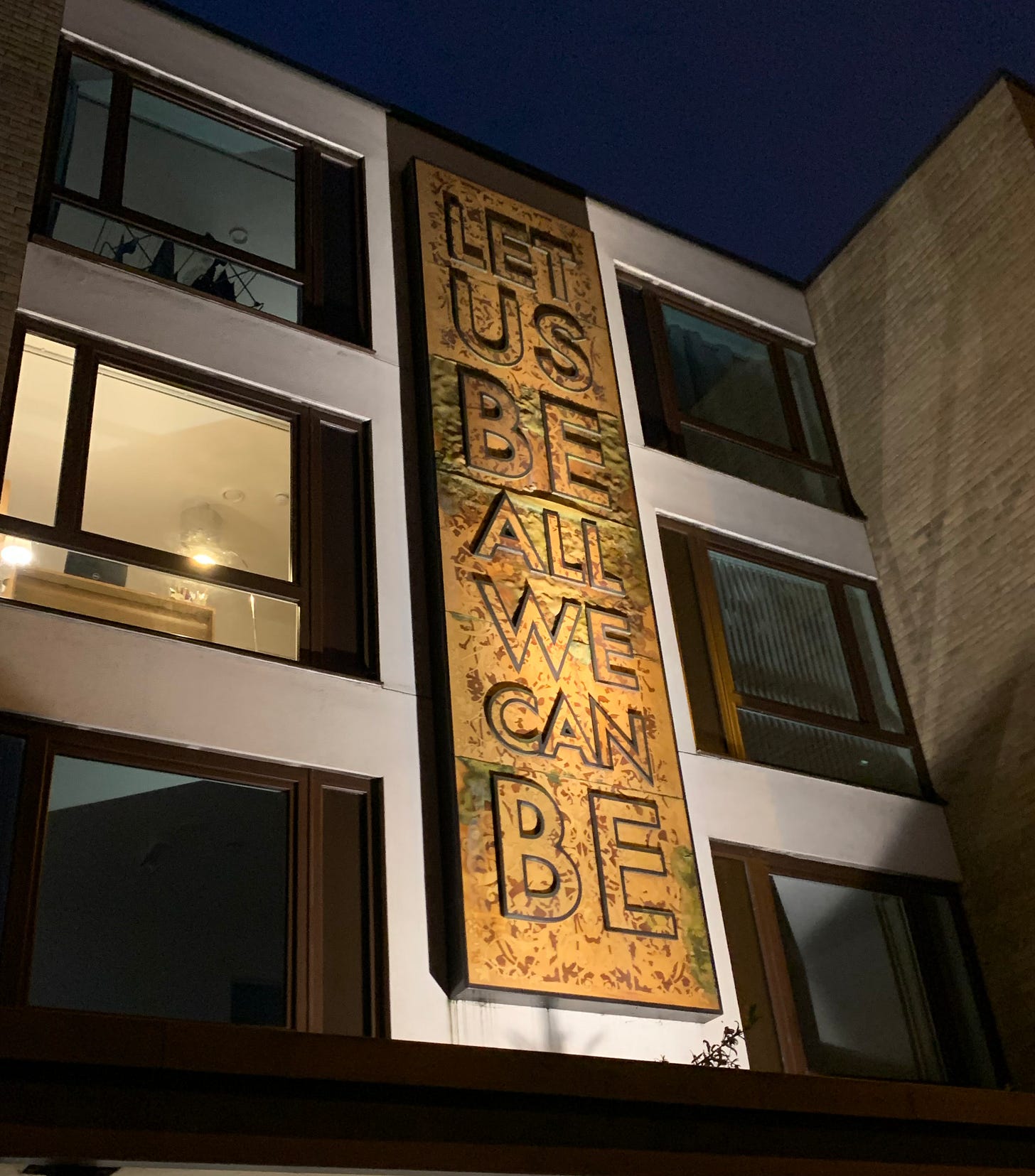Orientation.
Upon one's journey of learning, often large shifts in orientation can occur. These shifts, at times, can appear daunting; however, in truth, they are crucial steps to form a grounded and nuanced view of reality. Over the past year, since my conversion to Islam, I have embarked on a journey of learning and research, flicking through literary classics, delving into political and religious philosophy, studying comparative religion and theology, and pouring my untapped emotions into writing. In fact, I am also taking the next step to study Politics and Philosophy formally in the next academic year at the undergraduate level.
However, most recently, I have experienced a slight lull in motivation. I ditched the fiction books, no longer feeling the depth of empathy and emotional connection novels once gave me, feeling as though my emotional depth has faded with the events occurring in my life. The weight of the motivation to thread my emotions through the fabric of my writing flew from my shoulders, leaving me feeling slightly lost and confused about my intellectual identity. As an individual who values their emotional depth and empathy in writing and fictional reading, this was deeply unsettling and troubling for me, hence my lack of recent pieces on Substack. I simply haven't had much to say, at least not in the style in which I used to say it. Even my energy for polemics (arguing the case for Islam) faded, exhausted with the constant burden of attempting to prove something I believe to everyone else. At the time, I felt this sense of loss; however, now in a reflective state, I feel this phase was essential, integral to my journey as a student of knowledge.
Nourishment.
As a result of this lull, I felt a deep urge to return to basics, to learn my religion from the ground up. I threw myself into more intense study of the Quran and classical Islamic texts, particularly on topics such as jurisprudence, to solidify the foundation of my worldview. As a religious individual in a secular age, it can be easy, instead of learning your religion from the presupposition of its veracity, to learn it from a defensive or polemical position. You learn about your religion to defend it rather than to improve your spiritual life and benefit you in this life and the next. Learning one’s religion from a defensive or polemical perspective can encourage the development of an underlying skeptical epistemological worldview and lead to constant internal conflict and turbulence. Particularly as an individual who has done the work in accepting a religion due to the body of convincing external and first-person subjective evidence, it is important to take a break from analyzing and to focus on solidifying one’s beliefs. Many religious individuals are, in fact, rather ignorant of their own traditions from a classical perspective, not taking the time to view creedal and jurisprudential texts from their religious traditions to ground themselves morally and spiritually in an atheistic world. This, for the religious individual, is of utmost importance in this age of militant secularism. To add, focusing on worship, sitting in the Mosque at dawn and at sunset, reflecting upon the reason for my creation, and the true purpose of life has had such an intense spiritual impact upon me, more so than any book or intellectual experience. Standing in prayer next to strangers in a place I’ve never visited before, head down in submission and humility before the Divine Majesty, letting the frequencies and softness of the recitation of the Quran caress my ears and unifying with others to one purpose—to worship our Creator—what a profound impact such a simple act can have upon the soul. Nothing can truly compare to the nourishment of the soul. As a result of this internal shift, I have begun to develop an insatiable interest in religious scholarship, a slight shift from my former interests, despite this still being an area I was passionate about previously. This feeling has, in fact, been intensely liberating, as forming a foundation of knowledge religiously from a non-polemical perspective has proved crucial for my grounding.
Embrace.
To shift the focus from myself, my slightly more informal message than usual is this: shifts in focus and motivation are, in fact, totally and absolutely normal and necessary for one’s intellectual development. We experience different phases in our lives. As raw, emotional young people and writers, we often have a lot to say about the world, a lot of internal angst to spill upon the page, and perhaps we envy our previous raw emotional selves for the depth and insight we once displayed in both our relationships and, in my case, my writing. At times in life, and particularly on our intellectual and spiritual journeys, it is normal to have phases where we struggle to find emotional depth or intense experience, and as a result, a shift in focus is needed. As an individual committed to intellectual success, one must accept and embrace changes in focus and place themselves in the best position to benefit from this shift. Perhaps the Divine is shifting your focus to ground you in useful knowledge in a particular topic for later usage, to eventually return to benefit the subjects you have slightly lost interest in. In this, our tawakul (complete reliance on Allah) has the chance to be developed—when lost, always trust the Planner.
If you made it this far, I’d hugely appreciate it if you hit the subscribe button, like and share the post.
Thank you very much for reading,
May peace and blessings be upon you and your families,
Until next time,
-A






Quality mate